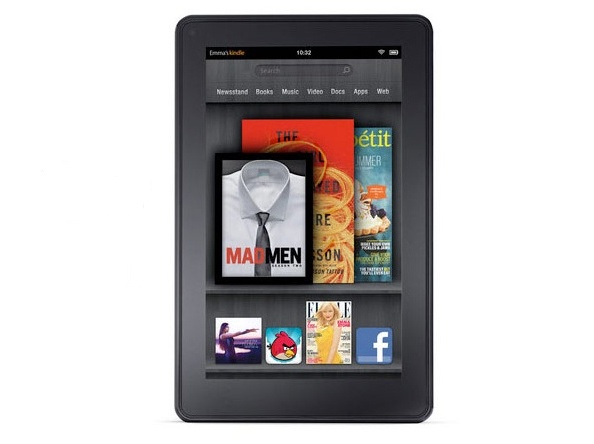Kindles and iPads are the Tescos of tech
Do we really want two firms to own all of everything?

In the film Wall-E, humans get so lazy that all the shopping in the world comes from a single place: from ice cream to intergalactic space liners, if you want it, BnL - it's short for Buy'N'Large - is where you get it.
The good news is that we're not quite there yet. The bad is that we're not far off, and yesterday's Kindle Fire announcement was yet another step in that direction.
In Wall-E BNL has a monopoly, but we have duopolies: offline, retail is dominated by Tesco and ASDA; online, it's dominated by Apple and Amazon. Between the two of them the two firms have a lock on an awful lot of content: Amazon's the world's biggest ebook seller, and Apple's the world's biggest music retailer.
As a gadget fan, I'm well aware that closed ecosystems such as iOS or the Kindle deliver the best possible end user experience. But I can't shift the nagging feeling that when we welcome our new retail overlords we're buying into something we might later regret.
Pile 'em high
As Columbia law professor Tim Wu points out, tech is creating information monopolies: where we once had stacks of search engines, today there's only really Google; "Apple dominates online content delivery; Amazon, retail, and so on."
If anything, the Kindle Fire demonstrates that it's worse than Wu says: Amazon's well into the content delivery business, too, not to mention book publishing: in addition to making e-reader hardware and software, it's a distributor and publisher, too.
The problem with letting a handful of firms dominate entire industries is that eventually, it becomes very hard to opt out. For example, I spend more time moaning about Facebook than I do actually using Facebook, but I can't kill my account because I'd lose track of too many people.
Sign up for breaking news, reviews, opinion, top tech deals, and more.
It's not that you're forced to use something; it's that once you're in, it's really inconvenient to go anywhere else - and for that very reason I buy my music in iTunes and my ebooks on Amazon, because I bought devices that work better with iTunes and with Amazon. In fact, it's worse than that, because I also publish ebooks - and guess which two firms are the biggies there?
The problem is that market power becomes self-perpetuating. You can see it in music, where most of the digital music bought for iOS devices comes from iTunes. And you can see it in books, where you're effectively invisible if you aren't published in iBooks and on the Kindle.
In the town I live in, locals are up in arms about a proposed new Tesco. It's going to be too big, they argue. It's going to crush local shops, they say. Lack of competition is bad for suppliers, they'll add. And they're right, and my town will get a bigger Tesco, and we'll all shop there while occasionally recalling the days when we had independent, family-owned shops.
I suspect we'll come to say the same about record shops, bookshops and newsagents' magazine racks: between them, AMZN and APPL are becoming BnL.

Contributor
Writer, broadcaster, musician and kitchen gadget obsessive Carrie Marshall has been writing about tech since 1998, contributing sage advice and odd opinions to all kinds of magazines and websites as well as writing more than twenty books. Her latest, a love letter to music titled Small Town Joy, is on sale now. She is the singer in spectacularly obscure Glaswegian rock band Unquiet Mind.